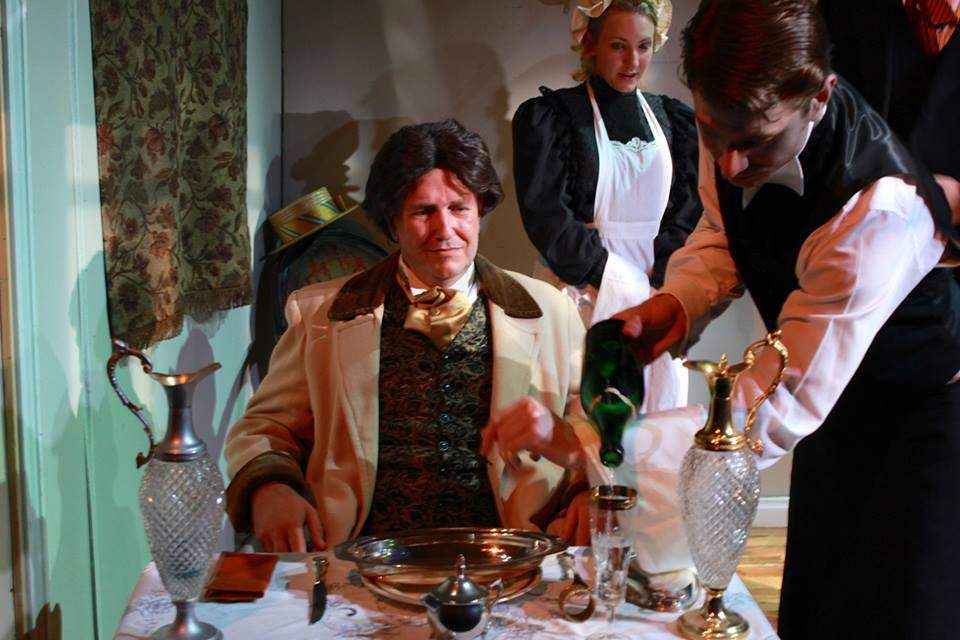The Judas Kiss – Mockingbird Theatre
A novel, poignant and controversial view on the life of Oscar Wilde.
Overview
I’m watching Oscar Wilde eat what may be his last meal before police drag him away on charges of sodomy and I’m wondering if he has the right cutlery for lobster. This probably shouldn’t be what’s on my mind at this point.
The first act of David Hare’s The Judas Kiss is a set up that should be bursting at the seams with tension. Wilde (Chris Baldock), having failed to quash accusations of sodomy with a defamation case against his male lover’s outraged father, faces imminent arrest. His friends are urging him to flee the country. Wilde however has holed himself up in a hotel room, paralysed with despair and the desire to be near his beloved, the dissolute Lord Alfred 'Bosie' Douglas (Nigel Langley).
Yet, as the first act comes to its finale, with a mob outside the hotel and fear running high, I’m thinking about table settings. Somewhere here the drama’s not doing it’s job.
The Judas Kiss is a play with a somewhat chequered history. It was reportedly a flop when first performed in England in 1998, while its Australian debut the following year drew sell-out crowds, protest and police attention for its onstage nudity and simulated sex.
This production by Mockingbird Theatre doesn’t seem set to be as explosive. After the initial (and to be fair to the prudes of the '90s, really quite gratuitous) cunnilingus scene, the first act falls into a kind of surly drawing room drama groove. Baldock’s Wilde is blustery and pompous and his friends all fret and shout a lot, mostly about action happening off stage involving characters you won’t meet. It doesn’t feel very Wilde at all, even as a depiction of the man in extremis. While Hare’s script does a decent job of mimicking the poet’s acid tongue, emotional nuance is lacking in the performances, which oscillate from twee to raging with no shades between. Bosie’s odiousness is so transparent he is hard to credit as a plot-driving love interest and it all becomes a bit of a slog.
The second act, which takes place after Wilde’s imprisonment, when he and Bosie are living in impoverished exile in Italy, is substantially better. The drama is more immediate and personal, being driven by onstage action rather than events off stage, the characters are shown in a more complex light and the nudity, while even more louche this act, is at least justified by the story. While a certain lack of chemistry between the leads remains a problem, Baldock works much better as the broken man Wilde is by this stage and the act builds to a satisfying emotional climax.
At two and a half hours, the show is pretty long, especially as it tends to revisit the same emotional territory. You’ll also probably get more out of it if you brush up on Wilde’s biography beforehand, as it does somewhat rely on assumed knowledge. Both the script and the delivery could be tighter but it is still an interesting work which offers a novel and poignant view of the man himself.





